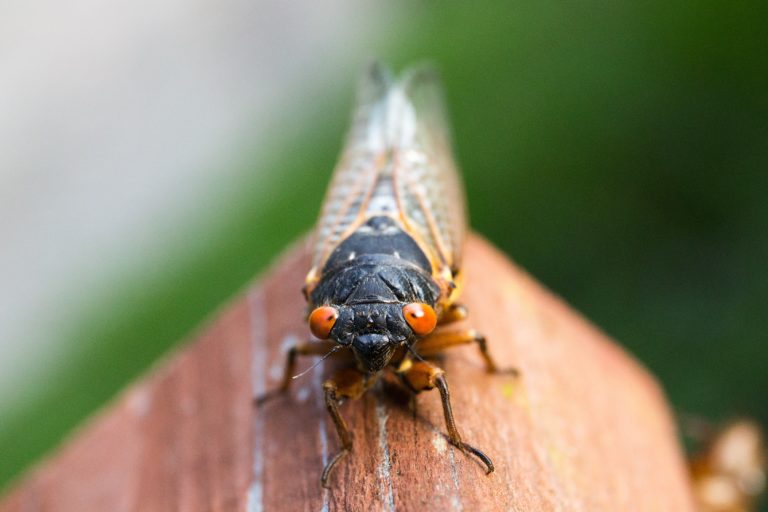It has been 17 years in the making. The Brood X cicadas are about to emerge. This means lots of noise for us humans as we bob and weave to avoid hitting them in the air. This also means lots of potential “treats” for your pets to gobble up. With billions of these cicadas expected to emerge all across the Midwest, what do you need to know to keep your pets safe?
Are cicadas poisonous?
The good answer is no they are not poisonous. These large insects can seem very tempting to your pets. They may chew on them or vomit them back up. However, cicadas do not bite or sting so they will not emit any harmful toxins if eaten by your pets.
Should I worry if my pet eats one?
Although these insects are not toxic if eaten, they have a hard exoskeleton made of chitin, which can be difficult to digest. If your pet eats one or two, they may only have a slightly upset stomach. If they eat a few it may result in your pet vomiting or having some diarrhea. However, if they eat a lot of cicadas, they could suffer from some digestion issues or intestinal blockages because of the exoskeletons.
How can I avoid the cicadas?
With so many expected in our area, it is difficult to avoid the cicadas altogether. There are a few things you can do though to lessen your exposure to them.
- Typically, cicadas are less active around dawn and dusk. This would be the ideal time for you to take your pet for a walk.
- Cicadas are usually found closer to mature trees. For the next six weeks, it may be best to avoid hikes or wooded areas where larger amounts of older trees are found.
- When your pet is outside, be vigilant in watching them. Make sure you supervise your pet so you know immediately if they consume any insects.
What do I do if my pet eats a lot of cicadas?
If your pet does in fact consume a large number of cicadas, take away their food and water for about an hour. This gives your pet’s stomach some time to settle down. If they continue to vomit for longer than that hour, you should contact your veterinarian to make sure nothing more severe is occurring internally.
How long do I need to be concerned?
The Brood X cicadas usually emerge from the ground around the third week in May. Once they arrive, they are above ground for about six weeks. This gives them enough time to mate and then die off. Depending on when you start seeing them in your area, we recommend staying vigilant for six weeks from your first spotting of cicadas.




